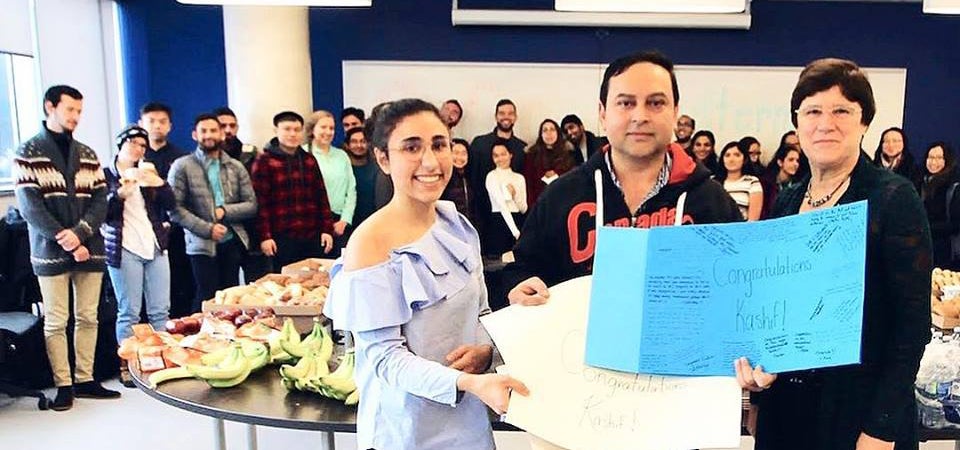
The Science and Business community would like to congratulate our very own Dr. Kashif Memon for receiving his PhD in Education from the University of Western Ontario.
Dr. Memon’s PhD thesis focuses on how the marginalization of female education can be reduced in developing Asian countries. He found inspiration in many people including former female teachers and his own female family members, including his mother, grandmother, sister, and wife. With these shining examples, he wanted to change the stigma that girls are considered property or territory and find ways to empower and educate young women.
Having work experiences with the United Nations and World Bank, he noticed that off-the-shelf solutions from other parts of the world were inefficient. Therefore, Dr. Memon focused on implementing “indigenous solutions”; a term he coined which is a solution that is specific to a country or region as it considers political, sociocultural, and economic factors. To address this issue, Dr. Memon had to involve those who have been previously affected by marginalization and those who deny that marginalization of female education even exists. He encouraged understanding and empathizing with indigenous cultures, bringing people together, making locals part of the solution, and encouraging all to slowly break free of stigmas. He developed methodical approaches encouraging the involvement of NGOs (Non-Governmental Organization) to help the ongoing battle against discrimination of young women and their lack of access to education. His proposed plan has the potential to create real change and growth.
When asked how the students of UW can make an impact as he did, Dr. Memon explained how an isolationist shift towards a more technologically-abled society is hindering us from truly making an impact.
“We are missing human connection and we aren’t communicating at the grassroot level," said Dr. Memon. "We need to move away from isolationist technology and see it as just of the one important components needed to solve the puzzle of problems.
For example, his research focuses on intersection of politics, technology, government policy, resource management, and their social impacts. He encourages students to see connectivity between the various variables that exist around them and develop a strategic personal and community focus to create a positive impact. He also encourages students to give back to those who have helped them along their journey and practice “servant leadership”, an ideology that promotes initiatives which help others.
Lastly, he encouraged students to take risks. Having this first-hand experience working in different cultures has created strength and resilience in him and challenged him to question the status quo and go beyond what is in front of him.
On Wednesday, November 14, 2018, more than 100 Science and Business students had the chance to congratulate their esteemed professor at this term’s Mid-term Breakfast.
We’d like to thank you, Kashif, for being a source of inspiration and guidance to each and everyone of us.